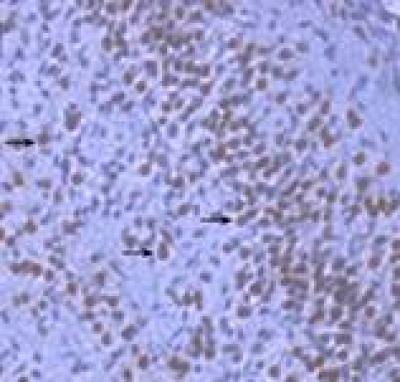Increased brain cell apoptosis in intrauterine growth-restricted fetal rats is a key reason for unfavorable long-term prognosis of the nervous system. The harmful effects of intrauterine growth restriction on fetal brain development originate in the womb. Therefore, it is difficult to obtain ideal outcomes through postnatal intervention. Taken together, active prenatal intervention is of great importance to the optimal prognosis of the intrauterine growth restricted fetus. Prof. Jing Liu and colleagues from the General Hospital of Beijing Military Command found that taurine supplement reduces cell apoptosis through the glial cell line-derived neurotrophic fac-tor-caspase-3 signaling pathway, resulting in a protective effect on the intrauterine growth-restricted fetal rat brain. Their experimental results, published in the Neural Regeneration Research (Vol. 8, No. 23, 2013), provided theoretical evidence for preventing or lessening brain injury and promoting brain development in intrauterine growth-restricted fetuses using a suitable measurement before parturition.

After taurine supplementation in pregnant rats, the number of cells positive for glial cell line-derived neurotrophic factor in the cerebral cortex of fetal rats with intrauterine growth restriction was increased (immunohistochemical staining, × 400).
(Photo Credit: Neural Regeneration Research)
Source: Neural Regeneration Research